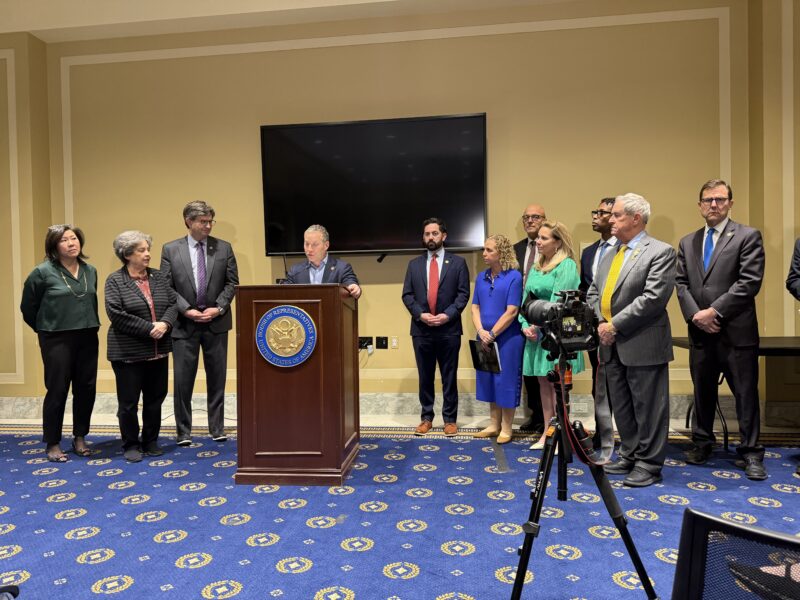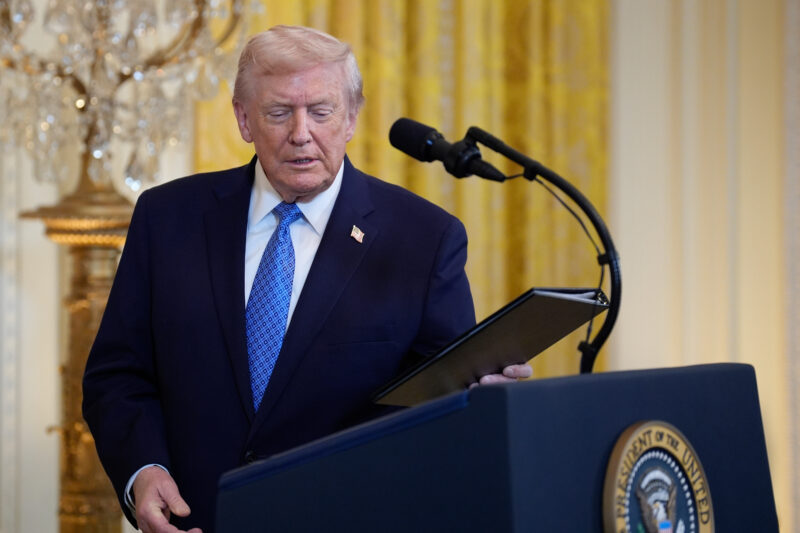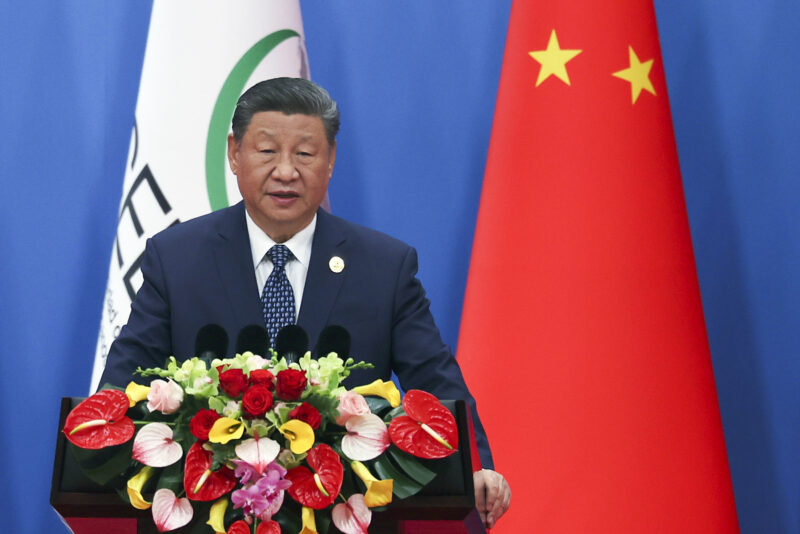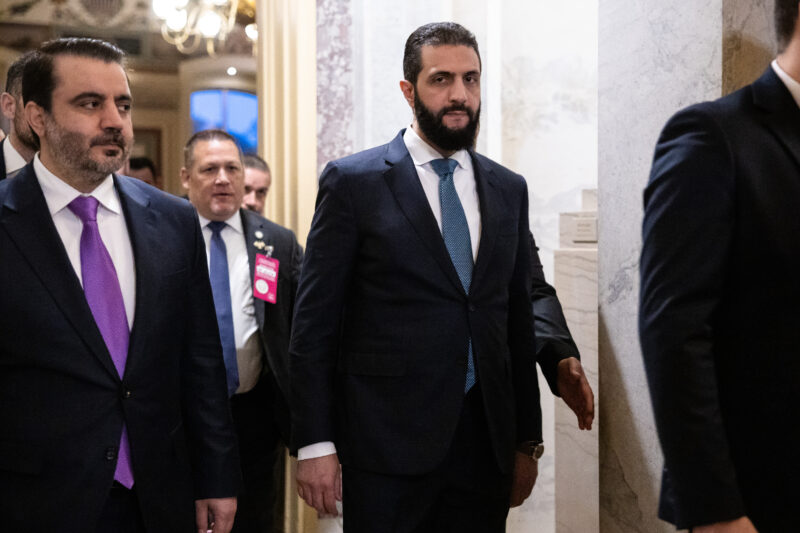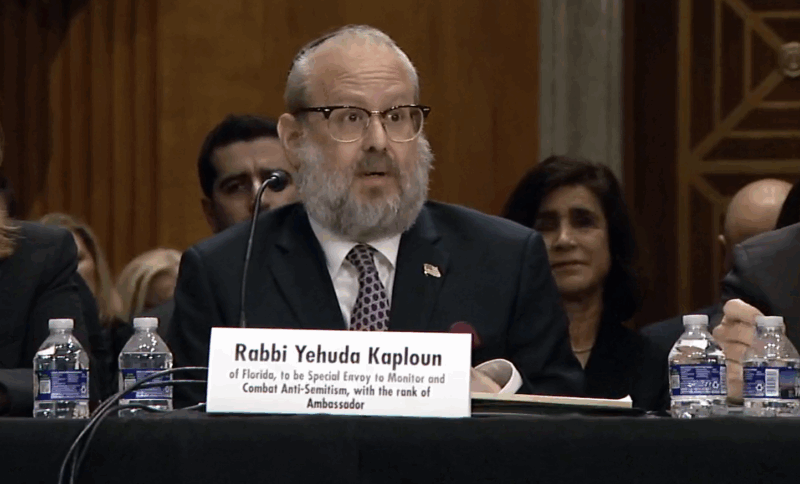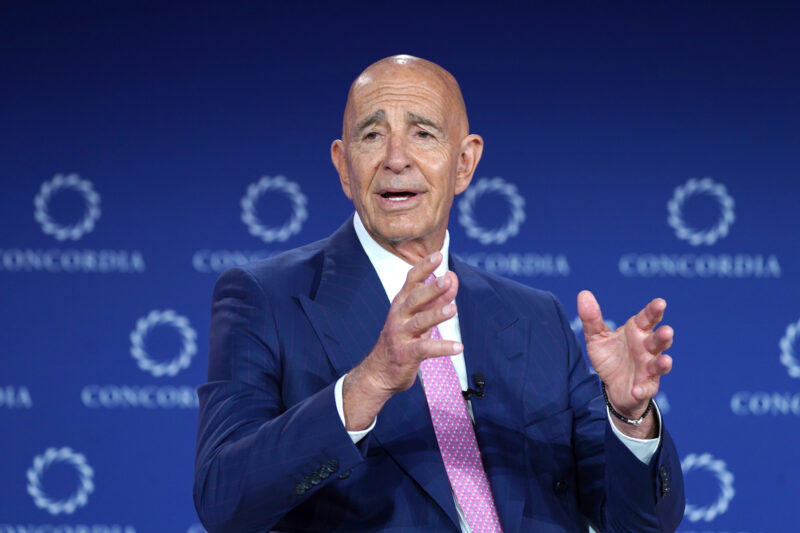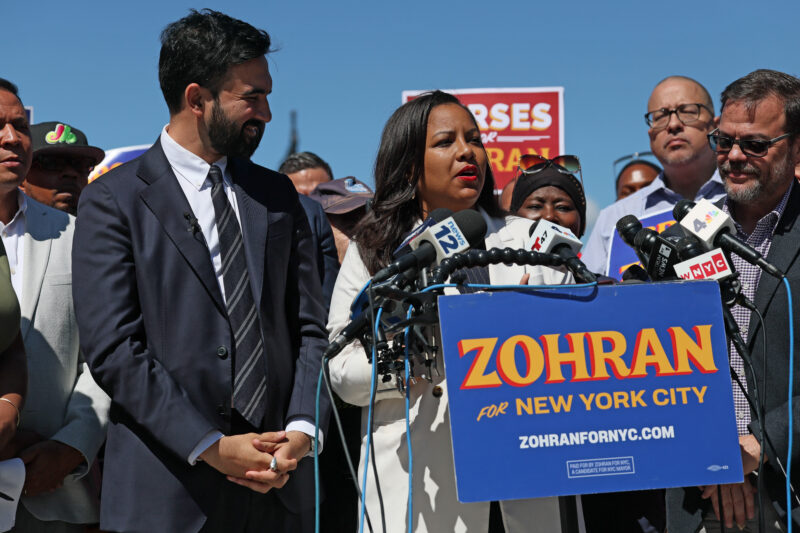Senate Foreign Relations Committee advances Arab-Israeli normalization bill
The meeting turned acrimonious during debate over amendments introduced by Sen. Ted Cruz
Anna Moneymaker/Getty Images
Sen. Ted Cruz (R-TX) gestures as he speaks during a news conference on the U.S. Southern Border and President Joe Biden’s immigration policies, in the Hart Senate Office Building on May 12, 2021 in Washington, D.C.
The Senate Foreign Relations Committee voted on Thursday to advance the bipartisan Israel Relations Normalization Act, a broadly popular bill originally sponsored by Sens. Rob Portman (R-OH), Cory Booker (D-NJ), Ben Cardin (D-MD), Todd Young (R-IN) and James Risch (R-ID) that seeks to strengthen and expand last year’s agreements between Israel and a number of Arab nations.
The legislation, which passed the committee by voice vote, has 56 total sponsors, making it likely to pass though the Senate. Despite the bill’s broad support, Thursday’s meeting turned acrimonious over a pair of amendments introduced by Sen. Ted Cruz (R-TX).
One of Cruz’s amendments would have removed a line from the bill stating that U.S. policy is to support a negotiated two-state solution, which was added after Cruz cosponsored the bill. The Texas senator argued that it is not Washington’s place to dictate what sort of peace agreement Israel should reach.
“My view is we may well see a two-state solution, but it is not America’s place to arrogantly lecture Israel that that has to be the resolution,” Cruz said before the vote.
“I believe we ought to allow the Israelis and the Palestinians to negotiate and arrive upon a peace deal,” he continued. “By declaring that it is United States policy to support a two-state deal, we’re going backwards on the promise we made in the last four years. I think we are decreasing the chances of peace. I believe America should not be presuming to dictate the terms of peace to Israel.”
The argument has become increasingly common among Republican lawmakers and candidates in recent years.
Cruz said he did not object to other language in the bill stating that the agreements, known as the Abraham Accords, could “enhance efforts towards a negotiated solution to the Israeli-Palestinian conflict resulting in two states — a democratic Jewish state of Israel and a viable democratic Palestinian state — living side by side in peace, security and mutual recognition” because he felt they did not impose a mandate that Israel seek a two-state solution.
Sen. Tim Kaine (D-VA) responded that support for a two-state solution has been a cornerstone of U.S. policy since Israel’s founding as well as a key part of the original United Nations mandate for the State of Israel. The Trump administration’s own peace proposal also supported a two-state solution.
“This is not an imposition of anything,” Kaine argued, adding that Israeli officials he had spoken to also support a two-state solution.
The meeting subsequently devolved into a shouting match between Cruz and Committee Chair Bob Menendez (D-NJ), who accused Cruz of “blackening” the committee’s bipartisan history by “turning the committee’s business for a political purpose,” speculating that the Texas senator was acting to advance his “presidential aspirations.” He also pointed to Cruz’s move to delay votes on all of the career nominees on the committee’s agenda.
The amendment failed by a 19-3 vote, with Cruz and Sens. Marco Rubio (R-FL) and Bill Hagerty (R-TN) voting in favor.
Cruz and Hagerty also introduced amendments seeking to block aid to the Palestinian Authority until it stops its “pay-to-slay” payments to families of individuals involved in acts of terrorism against Israelis.
Cruz accused the Biden administration of attempting to circumvent the Taylor Force Act, which blocks most aid to the Palestinian Authority as long as it continues the payments.
Committee Ranking Member Jim Risch (R-ID) argued in support of the amendments, saying that, despite existing laws, “this money continues to leak for payments to the terrorists.”
“I view [Hagerty’s amendment] as ‘we really, really mean it’ language,” he added. “Until they get rid of that ‘pay-for-slay’ program, I don’t think we can say this enough.”
Menendez argued that both amendments were redundant and appeared politically motivated.
“It would seem this amendment like some others has been drafted for a purpose that is either redundant or an effort to tweet against those that are voting against it. While I don’t have a substantive objection, since this is already the law, there is absolutely no value added… or legitimate purpose, in my view, of the amendment,” Menendez said of Hagerty’s proposed amendment.
He added that Cruz’s amendment “is written in such a way that can only be described from my view as a partisan ‘gotcha’ attempt to come away with some sort of statement that those who vote against it are voting against the Taylor Force Act or its requirements. Personally I’ve had enough of that.”
Menendez and Kaine also argued that Cruz’s amendment would restrict or block funding under the 2020 Middle East Partnership for Peace Act, which already explicitly blocks funding to the Palestinian Authority and the Palestine Liberation Organization.
Both amendments failed along party lines in tied votes.
Cruz, originally a cosponsor of the bill, pulled his sponsorship after his proposed amendments failed. He was also the only committee member to request to be recorded as voting no on the bill.
Later in the meeting, Sen. Chris Murphy (D-CT) expressed concerns about the methods through which the Abraham Accords were negotiated, pointing to decisions such as recognition of Moroccan sovereignty over the Western Sahara and the sale of F-35s and Reaper drones to the United Arab Emirates that were not officially part of the agreements but appear linked to them.
“As we move forward this resolution I just want to protect our equity as an institution that these agreements — to the extent that the U.S. is an official or unofficial party — are transparent,” Murphy said. “It may be that if we saw all of the pieces on the table we would still all be very supportive, but it’s pretty clear that commitments were made by the United States that this committee in particular and Congress did not get a chance to review.”
The House companion to the normalization bill has 145 cosponsors and is awaiting consideration by the Foreign Affairs Committee.
AIPAC, which lobbied in support of the legislation during its virtual national meeting earlier this year, praised the Senate Foreign Relations Committee’s move to advance it.




